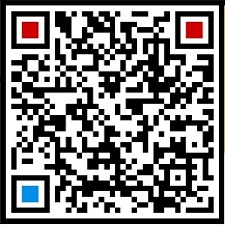留学文书范文|医科|个人陈述|PS|医药学|19
嘉东/2020-01-21/ 分类:个人陈述PS/阅读:
Applied Program: Pharmacology / Toxicology After conducting an on-the-spot survey in 1998 as a member of a research team in a certain region impoverished in economy and most backward in medical conditions in Chinas Shanxi Province, I told ...
Applied Program: Pharmacology / Toxicology
After conducting an on-the-spot survey in 1998 as a member of a research team in a certain region impoverished in economy and most backward in medical conditions in China’s Shanxi Province, I told myself that for the rest of my lifetime pursuing pharmaceutical research should be both a moral obligation and a career for me. The survey showed that the unusually high incidence of cancer in local inhabitants and infant deformation was directly related to the highly polluting industrial wastewater emitted by a local paper-manufacturing plant. While feeling shocked, I also perceived the immense pressure, though intangible, that I was morally obliged to shoulder as a pharmacological and toxicological researcher. With the increasing environmental deterioration, people in many other regions of China, as a developing country, are incurring or will soon incur the same ill fate. To enable those people realize the hazards that surround them, to protect them from the potential dangers by means of advanced theories and technologies, and to prevent similar tragedies from repeating themselves, this constitutes the common responsibility and the desire of each researcher. It is my wish that my scientific and academic efforts may contribute to make the flower of life blossom more beautifully.
Both of my parents are medical workers and as a teenager I grew up on the compound of the medical institute where my parents work, an institute that was tinted with a heavy academic atmosphere. It was my childhood experience in such an environment that facilitated my early interest in life sciences. What made me proud was that my research experience, as immature as it might be, could be traced back to my senior middle school life. During holidays or vacations, my father would persuade me to go to “work” in the laboratories of some renowned researchers of the institute. I was made responsible for raising animals for experimental purposes and cleaning the labware. Then I learned the more challenging lab skills such as anatomizing mice, injection, and drawing blood. As a quasi scientist, I did all this with the standard rigorousness of scientific research and, in retrospect, this experience helped to lay a solid foundation for my later-day rigorous research attitude and my sound experimental expertise.
When it came to making a choice as to which university was most suitable for realizing my teenager aspirations, it was all too natural that I chose China Pharmaceutical University – the largest and most comprehensive pharmaceutical university in China. My specialty was Pharmaceutical Preparation, which was a subject that was the most maturely developed and enjoyed the highest academic level within the university itself. It was like an ideal palace where all ambitious pharmaceutical students wished to receive their professional trainings. Pharmaceutical Preparation is a comprehensive discipline that subsumes a number of specific subjects and poses high requirements of students in terms of the knowledge in pharmacology, biochemistry, microbiology, pharmaceutical chemistry, and even in mechanical drafting and electrical engineering. In accomplishing the unusually heavy coursework, the students in this specialty became the elites of the university, endowed with the highest and most comprehensive professional qualities. I had to make myself well acquainted with the most complicated and substantial theoretical framework on one hand and to perform a great many experiments on the other hand, which allowed me to test the soundness of theories through empirical work. On account of my outstanding hands-on abilities and research potential, I was appointed by even the most exacting teachers as be the course representative of the Human Anatomy Physiology, Pharmacology, and Biopharmaceutics. This position, which is somewhat similar to TA, permitted me to cooperate with my teachers of those three courses to undertake some basic research.
In those exciting periods, I found that many mechanisms in pharmacology and toxicology had to be studied on the molecular level. Meanwhile, genetic science was becoming an increasingly power tool in pharmacological and toxicological research. With this important realization, I self-studied a large number of textbooks in those fields and took the initiative to keep myself abreast with the latest interdisciplinary developments in contemporary pharmaceutics. Once again, due to my excellent academic performance, I was recommended, during my internships, to participate in a development project of a new medicine at Beijing Pharmacological & Toxicological Research Institute. The research team adopted my proposal that HPLC method be employed to test the solubility of Huperzine A tablets. Eventually, the newly-developed drug won the Second-class State Award for Invention and my Bachelor’s thesis, which was based on my research findings from this project, was given a high grade of 89 points.
After graduation, I worked as a project manager in a large pharmaceutical technology development company. However, the low-level imitative drug production soon bored me, even though I earned high salaries. To satisfy my desire to undertake more creative and more meaningful researches, I switched to The Institute of Radiation Medicine of Beijing, believing that pharmacological and toxicological research was what fitted in with my real research interests. I joined the research team under the leadership of the renowned radiation and toxicological specialist Prof. Wan X X, who is also an academician of the China Academy of Engineering. The projects I have participated in include research on radiation-caused cancer and on the chemical-induced vicious mutation mechanism in the embryo cells of mouse. This wholly novel research field aroused my intense enthusiasm, allowing me to acquire considerable practical skills in molecular biology such as PCR, electrophoresis analysis, and CGH technology.
My English proficiency qualified me for the project of constructing a databank of patented Chinese traditional medicines launched by the State Intellectual Property Office of P.R.C. To ensure its high technical quality, I attended an all-English long-distance coaching program directed by experts from French Industrial Intellectual Property Bureau. By studying the latest international bibliography of pharmaceutical patents, I discovered that intellectual inventions in life science require a comprehensive combination of chemical, biological, mathematical and even computer knowledge, acute observations, rich imagination, and strong hands-on abilities. Those are prerequisite qualities for being an accomplished pharmaceutical scientist.
Under the circumstance that there are alarming gaps between China and its international counterparts in the field of pharmacology and toxicology, I have generated a most fervent desire to pursue advanced studies in those two fields and the University of ------------ comes on the top of my priorities. The sound research environment, advanced experimental technology and complete research facilities, as well as knowledgeable professors are what can land me onto new intellectual horizons. I will use my knowledge and experimental skills, especially my research experience in cancer development as a result of radiation-induced genetic mutation, to grasp as quickly as possible the pharmacological research skills of your university. I will focus on the study of malignant tumor and the disease-causing mechanism of HIV viruses. With mechanism study as a “point of entry”, I will explore the possibility of developing effective pharmaceutics. I know this would be difficult, but I am determined to make persistent efforts toward this objective.
Both of my parents are medical workers and as a teenager I grew up on the compound of the medical institute where my parents work, an institute that was tinted with a heavy academic atmosphere. It was my childhood experience in such an environment that facilitated my early interest in life sciences. What made me proud was that my research experience, as immature as it might be, could be traced back to my senior middle school life. During holidays or vacations, my father would persuade me to go to “work” in the laboratories of some renowned researchers of the institute. I was made responsible for raising animals for experimental purposes and cleaning the labware. Then I learned the more challenging lab skills such as anatomizing mice, injection, and drawing blood. As a quasi scientist, I did all this with the standard rigorousness of scientific research and, in retrospect, this experience helped to lay a solid foundation for my later-day rigorous research attitude and my sound experimental expertise.
When it came to making a choice as to which university was most suitable for realizing my teenager aspirations, it was all too natural that I chose China Pharmaceutical University – the largest and most comprehensive pharmaceutical university in China. My specialty was Pharmaceutical Preparation, which was a subject that was the most maturely developed and enjoyed the highest academic level within the university itself. It was like an ideal palace where all ambitious pharmaceutical students wished to receive their professional trainings. Pharmaceutical Preparation is a comprehensive discipline that subsumes a number of specific subjects and poses high requirements of students in terms of the knowledge in pharmacology, biochemistry, microbiology, pharmaceutical chemistry, and even in mechanical drafting and electrical engineering. In accomplishing the unusually heavy coursework, the students in this specialty became the elites of the university, endowed with the highest and most comprehensive professional qualities. I had to make myself well acquainted with the most complicated and substantial theoretical framework on one hand and to perform a great many experiments on the other hand, which allowed me to test the soundness of theories through empirical work. On account of my outstanding hands-on abilities and research potential, I was appointed by even the most exacting teachers as be the course representative of the Human Anatomy Physiology, Pharmacology, and Biopharmaceutics. This position, which is somewhat similar to TA, permitted me to cooperate with my teachers of those three courses to undertake some basic research.
In those exciting periods, I found that many mechanisms in pharmacology and toxicology had to be studied on the molecular level. Meanwhile, genetic science was becoming an increasingly power tool in pharmacological and toxicological research. With this important realization, I self-studied a large number of textbooks in those fields and took the initiative to keep myself abreast with the latest interdisciplinary developments in contemporary pharmaceutics. Once again, due to my excellent academic performance, I was recommended, during my internships, to participate in a development project of a new medicine at Beijing Pharmacological & Toxicological Research Institute. The research team adopted my proposal that HPLC method be employed to test the solubility of Huperzine A tablets. Eventually, the newly-developed drug won the Second-class State Award for Invention and my Bachelor’s thesis, which was based on my research findings from this project, was given a high grade of 89 points.
After graduation, I worked as a project manager in a large pharmaceutical technology development company. However, the low-level imitative drug production soon bored me, even though I earned high salaries. To satisfy my desire to undertake more creative and more meaningful researches, I switched to The Institute of Radiation Medicine of Beijing, believing that pharmacological and toxicological research was what fitted in with my real research interests. I joined the research team under the leadership of the renowned radiation and toxicological specialist Prof. Wan X X, who is also an academician of the China Academy of Engineering. The projects I have participated in include research on radiation-caused cancer and on the chemical-induced vicious mutation mechanism in the embryo cells of mouse. This wholly novel research field aroused my intense enthusiasm, allowing me to acquire considerable practical skills in molecular biology such as PCR, electrophoresis analysis, and CGH technology.
My English proficiency qualified me for the project of constructing a databank of patented Chinese traditional medicines launched by the State Intellectual Property Office of P.R.C. To ensure its high technical quality, I attended an all-English long-distance coaching program directed by experts from French Industrial Intellectual Property Bureau. By studying the latest international bibliography of pharmaceutical patents, I discovered that intellectual inventions in life science require a comprehensive combination of chemical, biological, mathematical and even computer knowledge, acute observations, rich imagination, and strong hands-on abilities. Those are prerequisite qualities for being an accomplished pharmaceutical scientist.
Under the circumstance that there are alarming gaps between China and its international counterparts in the field of pharmacology and toxicology, I have generated a most fervent desire to pursue advanced studies in those two fields and the University of ------------ comes on the top of my priorities. The sound research environment, advanced experimental technology and complete research facilities, as well as knowledgeable professors are what can land me onto new intellectual horizons. I will use my knowledge and experimental skills, especially my research experience in cancer development as a result of radiation-induced genetic mutation, to grasp as quickly as possible the pharmacological research skills of your university. I will focus on the study of malignant tumor and the disease-causing mechanism of HIV viruses. With mechanism study as a “point of entry”, I will explore the possibility of developing effective pharmaceutics. I know this would be difficult, but I am determined to make persistent efforts toward this objective.
此文书内容来源于网络,若侵犯权益,请及时联系我们!
若需要更多的文书范文也请联系我们!
-
VIP咨询

免费申请/获取文书范文加上方微信
-
微信公众号

更多免费申请信息请关注上方公众号
版权声明 本文仅代表作者观点,不代表本站立场。
本文系作者授权本站发表,未经许可,不得转载。
本文系作者授权本站发表,未经许可,不得转载。
扩展阅读:
推荐文章
Recommend article-

艺术设计类-媒体管理-个人陈述范文-1
个人陈述PS/阅读:1042 -

医科-个人陈述范文PS-心理学-14
个人陈述PS/阅读:636 -

留学文书范文|电子工程|个人陈述|PS|Electrical Engineering|14
个人陈述PS/阅读:456 -

留学文书范文|计算机科学|个人陈述|PS|软件工程|11
个人陈述PS/阅读:722 -

留学文书范文|机械工程|个人陈述|PS|Mechanical Engineering|8
个人陈述PS/阅读:422 -

留学文书范文|法学|个人陈述|PS|3|LLM
个人陈述PS/阅读:655
热门文章
HOT NEWS




